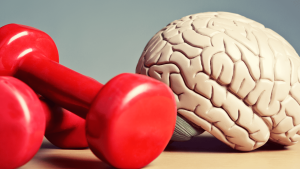Welcome to our comprehensive guide to whole-person wellness. In today’s fast-paced world, it’s easy to neglect our wellbeing. However, true wellness encompasses more than just physical fitness. It encompasses the health of the mind and the body in harmony.
Understanding the connection between wellness, wellbeing, and the mind is crucial for leading a fulfilling life. When we prioritize our mental and physical health, we lay the foundation for a balanced and happy existence. In this guide, we will explore various aspects of whole-person wellness and provide practical tips for nurturing both your mind and body.

Key Takeaways:
- Whole-person wellness involves nurturing the mind and body in harmony.
- Understanding the connection between wellness, wellbeing, and the mind is essential for overall wellbeing.
- This guide will provide practical tips for achieving and maintaining whole-person wellness.
- Prioritizing self-care is crucial for a balanced and happy existence.
- By embracing a holistic approach to wellbeing, you can enhance your overall quality of life.
Understanding Wellness and Wellbeing
Wellness and wellbeing are two intertwined concepts that play a crucial role in maintaining a healthy and fulfilling life. While often used interchangeably, they have distinct but interconnected meanings.
Wellness encompasses the overall state of being physically, mentally, and emotionally well. It involves taking proactive measures to enhance one’s health and prevent illness or disease. Wellness is a holistic approach that focuses on achieving optimal balance in various aspects of life.
On the other hand, wellbeing refers to the subjective experience of feeling good and functioning well in different domains of life. It goes beyond physical health and encompasses mental, emotional, and social wellbeing. Wellbeing is a multidimensional concept that reflects one’s overall quality of life.
When it comes to achieving holistic wellness, it’s important to address multiple dimensions, including physical, mental, emotional, and social aspects of health. Striving for balance and integration in these areas can lead to enhanced overall wellbeing.
To illustrate the components of holistic wellness, consider the following:
Physical Wellness
Physical wellness focuses on maintaining a healthy body through regular exercise, proper nutrition, and adequate rest. It involves engaging in activities that promote strength, flexibility, and cardiovascular health. By prioritizing physical wellness, individuals can improve their energy levels, reduce the risk of chronic diseases, and promote overall vitality.
Mental Wellness
Mental wellness encompasses our cognitive abilities, emotional resilience, and psychological wellbeing. It involves adopting habits that promote positive mental health, such as managing stress, practicing effective coping strategies, and fostering positive relationships. By nurturing mental wellness, individuals can enhance their emotional intelligence, creativity, and overall cognitive functioning.
Emotional Wellness
Emotional wellness focuses on understanding and managing our emotions in a healthy and adaptive way. It involves developing self-awareness, self-compassion, and emotional regulation skills. By prioritizing emotional wellness, individuals can cultivate healthy relationships, communicate effectively, and experience greater life satisfaction.
Social Wellness
Social wellness emphasizes the importance of building and maintaining meaningful relationships. It involves cultivating a support network, engaging in social activities, and contributing to our communities. By nurturing social wellness, individuals can experience a sense of belonging, connection, and fulfillment.
Understanding the interconnectedness of wellness and wellbeing is essential for achieving a balanced and fulfilling life. By prioritizing self-care, adopting healthy habits, and embracing a holistic approach, individuals can enhance their overall wellness and experience greater wellbeing.
Cultivating Mental Health
In today’s fast-paced world, nurturing mental health is more important than ever. Taking care of your emotional well-being is crucial for maintaining a balanced and fulfilling life. Here are some practical tips and strategies to help you cultivate and improve your mental health:
- Practice self-care: Engage in activities that bring you joy and relaxation. This could be anything from taking a bubble bath or reading a book to going for a walk in nature.
- Manage stress: Implement stress management techniques such as deep breathing exercises, mindfulness, or meditation. These practices can help reduce anxiety and promote overall mental well-being.
- Seek support: Reach out to trusted friends, family members, or professionals when you need emotional support. Talking about your feelings can alleviate stress and provide valuable perspective.
- Set boundaries: Learn to say no to activities or commitments that may overwhelm you. Prioritizing your mental health means recognizing your limits and focusing on what truly matters to you.
- Maintain a healthy lifestyle: Eat a balanced diet, exercise regularly, and get enough sleep. Physical health and mental health are closely linked, so taking care of your body will positively impact your mind.
- Engage in hobbies: Dedicate time to activities you enjoy and that bring you a sense of accomplishment. Whether it’s painting, playing an instrument, or gardening, these hobbies can provide a much-needed outlet for self-expression and relaxation.

Remember, mental health is a journey, and everyone’s experience is unique. Taking small steps each day to care for your mind can make a significant difference in your overall well-being. Prioritize self-care, seek support when needed, and embrace strategies that resonate with you. By cultivating your mental health, you are investing in a happier, healthier future.
The Power of Mindfulness
Mindfulness is a powerful practice that can significantly improve both mental and physical wellbeing. By focusing on the present moment and cultivating non-judgmental awareness, mindfulness allows individuals to develop a deeper connection with themselves and the world around them.
One of the key benefits of mindfulness is its ability to reduce stress and promote relaxation. By taking time to slow down and pay attention to one’s thoughts, emotions, and bodily sensations, individuals can gain a greater sense of calm and peace. Research has also shown that mindfulness can help regulate emotions, improve concentration, and enhance overall cognitive function.
Incorporating mindfulness into daily life is easier than you might think. It can be as simple as taking a few moments each day to focus on your breath or engage in a mindful activity, such as walking or eating. Mindfulness meditation, which involves sitting quietly and observing your thoughts without judgment, is another popular practice that can bring about profound benefits.
The Benefits of Mindfulness Include:
- Reduced stress and anxiety
- Improved emotional regulation
- Enhanced self-awareness
- Increased compassion and empathy
- Improved sleep
- Enhanced overall wellbeing
To incorporate mindfulness into your daily routine, consider setting aside a specific time each day for practice. This could be in the morning, during a lunch break, or before bed. Start with just a few minutes and gradually increase the duration as you become more comfortable.
Remember, mindfulness is a journey, and it’s normal to experience moments of distraction or wandering thoughts. When this happens, gently guide your attention back to the present moment without judgment or frustration.
By embracing mindfulness and integrating it into your daily life, you can tap into its power to cultivate a greater sense of peace, resilience, and overall wellness.
Holistic Approaches to Wellness
When it comes to achieving optimal wellness, taking a holistic approach is key. Holistic wellness recognizes that the mind, body, and spirit are interconnected and must be addressed as a whole to achieve overall wellbeing. By incorporating various holistic practices into your lifestyle, you can nurture each aspect of your being and experience transformative benefits.
One holistic practice that has gained widespread popularity is yoga. Yoga combines physical postures, breathwork, and mindfulness to promote balance and harmony in the body and mind. Regular yoga practice can improve flexibility, strength, and mental clarity, while also reducing stress and promoting relaxation.
Another powerful holistic practice is meditation. By setting aside dedicated time for quiet reflection, meditation allows you to calm your mind, improve focus, and reduce anxiety and stress. Incorporating daily meditation into your routine can help you achieve a sense of inner peace and emotional stability.
Alternative therapies such as acupuncture, aromatherapy, and Reiki are also part of holistic wellness. These practices work on the principle of restoring energy balance in the body, promoting healing and overall wellbeing. Acupuncture, in particular, involves the insertion of thin needles into specific points on the body to alleviate pain and improve energy flow.

When embracing holistic wellness, it’s essential to nourish your body with wholesome, nutrient-dense foods. A well-rounded diet rich in fruits, vegetables, whole grains, and lean proteins provides the necessary nutrients for optimal physical and mental health. Additionally, staying hydrated, getting regular exercise, and prioritizing sleep are fundamental aspects of a holistic lifestyle.
By adopting a holistic approach to wellness, you can cultivate balance and harmony within yourself, leading to a more fulfilling and vibrant life. Incorporating practices such as yoga, meditation, and alternative therapies into your daily routine can enhance your overall wellbeing and help you thrive on all levels.
Nurturing Emotional Well-Being
Emotional well-being plays a crucial role in our overall wellness. Taking care of our emotions can enhance our quality of life, improve relationships, and boost resilience. Here are some effective strategies for nurturing emotional well-being:
1. Practice Self-Awareness
Self-awareness is the foundation of emotional well-being. Take time to reflect on your thoughts, emotions, and reactions. Pay attention to how certain situations and people impact your mood. By understanding your emotional triggers, you can respond to them in a healthier way.
2. Cultivate Self-Compassion
Be kind and understanding toward yourself. Treat yourself with the same compassion and empathy you would show to a friend in need. Practice self-care activities that rejuvenate your mind and body, such as taking walks in nature, enjoying a warm bath, or engaging in hobbies you love.
3. Foster Healthy Relationships
Positive and supportive relationships have a significant impact on our emotional well-being. Surround yourself with people who uplift and inspire you. Nurture your relationships by communicating openly, actively listening, and being there for your loved ones. Celebrate their successes and provide a shoulder to lean on during challenging times.
4. Develop Coping Mechanisms
Life can throw unexpected challenges our way. Developing healthy coping mechanisms can help us navigate difficult times and manage stress effectively. Consider practices such as journaling, meditation, deep breathing exercises, or engaging in physical activities that bring you joy.
5. Seek Professional Support
There may be times when professional support is necessary to nurture your emotional well-being. Therapists and counselors can provide valuable guidance and tools for working through emotional struggles or addressing past traumas. Don’t hesitate to reach out and seek help if needed.
Nurturing our emotional well-being is an ongoing journey. By practicing self-awareness, self-compassion, fostering healthy relationships, developing coping mechanisms, and seeking professional support when necessary, we can create a strong foundation of emotional balance and resilience.
Practical Wellness Tips for Daily Life
Incorporating wellness practices into your daily life is essential for maintaining overall wellbeing. By prioritizing self-care in various aspects of your life, you can enhance your physical, mental, and emotional health. Here are some practical wellness tips to help you lead a more balanced and fulfilling life:
Nutrition
Eating a nutritious, well-balanced diet is key to supporting your health and wellness. Focus on consuming a variety of whole foods, including fruits, vegetables, lean proteins, whole grains, and healthy fats. Limit your intake of processed foods, sugary drinks, and excessive amounts of salt and saturated fats. Remember, nourishing your body with the right nutrients fuels your energy levels and promotes optimal wellbeing.
Exercise
Maintaining an active lifestyle is crucial for your physical and mental wellbeing. Engage in regular exercise that you enjoy, such as walking, jogging, dancing, or cycling. Aim for at least 150 minutes of moderate-intensity cardio exercise per week, along with strength training exercises to build muscle strength. Exercise not only improves your physical fitness but also boosts your mood, reduces stress, and enhances cognitive function.
Sleep
Getting sufficient sleep is vital for your overall wellness. Aim for 7-9 hours of quality sleep each night to allow your body and mind to rest and rejuvenate. Create a relaxing bedtime routine, avoid electronic devices before bed, and ensure your sleep environment is comfortable and conducive to restful sleep. Prioritizing sleep enhances your energy levels, improves cognitive function, and supports your emotional wellbeing.
Time Management
Effective time management is essential for reducing stress and maintaining a healthy work-life balance. Prioritize your tasks, set realistic goals, and create a schedule that allows for dedicated relaxation and self-care time. Learn to delegate tasks, say no to unnecessary commitments, and avoid multitasking, as it can lead to decreased productivity and increased stress levels. Allocating time for both work and leisure activities helps you maintain a sense of control and promotes overall wellness.
By embracing these practical wellness tips and integrating them into your daily routine, you can make significant strides towards nurturing your mind and body. Remember, small lifestyle changes can have a profound impact on your overall wellbeing and quality of life. Prioritize self-care and make your wellness a top priority.
The Journey of Self-Improvement
In the pursuit of personal growth and overall wellness, the journey of self-improvement plays a crucial role. Self-improvement involves taking intentional steps towards becoming the best version of oneself, embracing change, and continuously striving for progress. By focusing on areas for improvement and adopting a growth mindset, individuals can create positive changes in their lives and cultivate a sense of fulfillment.
A key aspect of self-improvement is setting goals. Clearly defining what you want to achieve allows you to create a roadmap for progress and provides a sense of direction. Whether it’s improving your physical fitness, enhancing your professional skills, or fostering healthier relationships, setting goals empowers you to take actionable steps towards self-improvement.
In addition to goal-setting, cultivating positive habits is essential to the journey of self-improvement. Small, consistent actions can have a profound impact on personal growth. By incorporating positive habits into your daily routine, such as regular exercise, mindfulness practice, or reading for personal development, you can create a positive ripple effect that extends to various aspects of your life.
Embracing a Growth Mindset
An important mindset to adopt on the journey of self-improvement is a growth mindset. This mindset acknowledges that abilities and intelligence can be developed through dedication, effort, and learning from setbacks. With a growth mindset, challenges are seen as opportunities for growth, and failures are reframed as valuable learning experiences. By embracing a growth mindset, you can overcome obstacles and approach self-improvement with resilience and determination.
- Believe in your ability to change and grow.
- View challenges as opportunities for growth.
- Learn from your mistakes and failures.
- Seek feedback and constructive criticism.
- Embrace a lifelong learning mentality.
The journey of self-improvement is unique to each individual. What works for someone else may not necessarily work for you. It’s important to be patient and compassionate with yourself along the way. Remember, self-improvement is not a destination; it’s an ongoing process of self-discovery and growth.
Conclusion
Throughout this comprehensive guide to whole-person wellness, we have explored various aspects of nurturing the mind and body. By prioritizing self-care, practicing mindfulness, and embracing a holistic approach, individuals can enhance their overall well-being.
Maintaining good mental health is crucial for overall wellness. It involves taking care of emotional and psychological well-being, seeking support when needed, and practicing stress management techniques. Additionally, incorporating wellness tips into daily life, such as proper nutrition, regular exercise, adequate sleep, and effective time management, can have a significant impact on well-being.
The power of mindfulness cannot be understated in achieving a state of balance. By cultivating present-moment awareness and practicing meditation, individuals can reduce stress, enhance focus, and improve their overall mental and physical well-being.
To experience true holistic wellness, it is essential to acknowledge the interconnection between the mind, body, and spirit. Nurturing emotional well-being, fostering healthy relationships, and embarking on a journey of self-improvement are all integral components of achieving holistic wellness.
In conclusion, by taking the time to prioritize self-care, embrace mindfulness, and adopt a holistic approach to wellness, individuals can experience enhanced overall well-being. Remember, wellness is a continuous journey, and small, consistent steps towards self-improvement can lead to transformative results in the pursuit of a healthier and more fulfilling life.